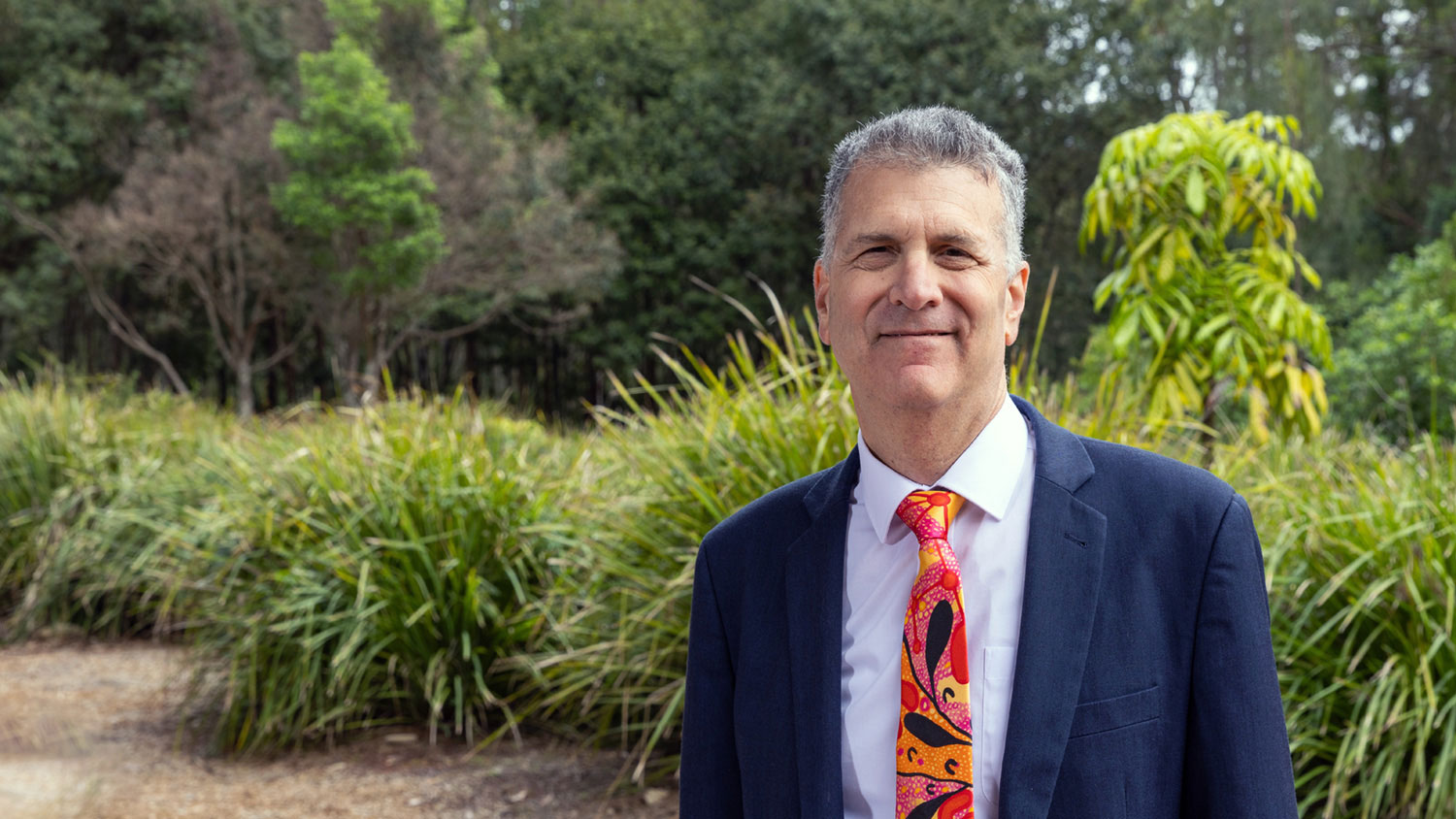Human connection central to future progress
Professor Robert Greenberg
Pro Vice-Chancellor, College of Human and Social Futures
An unwavering belief in the value of the arts, humanities, and social sciences, and a vision for a more connected world, guides Professor Robert Greenberg’s approach to his new role as Pro Vice-Chancellor (PVC) of the College of Human and Social Futures at the University of Newcastle.

Before he was Professor Greenberg – global educator, expert linguist, Yale PhD graduate and speaker of twelve languages – he was simply, Robert. A wide-eyed, four-year old American kid, jetting off on the adventure of his (relatively short) lifetime. With his family, he would board an aeroplane for a six-month stint living abroad in Sweden. The journey – which included stopovers in both New York and Scotland – was young Robert’s first taste of a world, connected.
“I remember being fascinated by the fact that the world could be interconnected in that way. Fascinated by global communication,” says Professor Greenberg.
“And the Swedish language was, of course, strange to me. Even at that early age, I was trying to pick up a few words here and there, I remember that quite distinctly.”
From this auspicious beginning grew a deep passion for language, and its power to transcend social and cultural barriers. As well as English, Professor Greenberg speaks Russian, Bosnian, Croatian, Serbian, Macedonian, Bulgarian, Hebrew, French, German, Slovenian and Czech.
“And I did study Māori as well,” he adds.
“It's an amazing tool. Once you learn a language, you also learn about the people, you learn about their culture, you learn about their history, the political system – a lot of doors open up for you.”
A global career
Professor Greenberg joins the University of Newcastle fresh from an 11 year tenure as Dean of the Faculty of Arts and Professor of Linguistics at The University of Auckland, Waipapa Taumata Rau. Before this, he held the position of Dean and Professor at Hunter College of the City University of New York, and for 10 years he was a Professor in the Department of Slavic Languages and Literatures at Yale University.
As a specialist in South Slavic languages and linguistics, Professor Greenberg conducts research on the link between language, nationalism, and conflict in the former Yugoslavia and Ukraine.
He also happens to be an accomplished classical pianist, and enjoys singing in community choirs.
A remarkable list of accomplishments by any standard, but the trajectory of Professor Greenberg’s career was almost quite different.
In 1985, while mid-way through his postgraduate studies at Yale, the retinal degeneration he’d first been diagnosed with as a teenager took his sight completely.
“The prognosis was that by 35, I would lose my sight. Well, I guess I'm a bit precocious because it was more like 23 or 24,” he laughs.
He took a year off, learned how to use a cane, and developed other skills needed to navigate his new reality. His academic future suddenly felt uncertain.
“I wasn't sure I could really do the PhD after all,” he explains.
But during that year, a chance stint teaching Russian at his undergraduate university, Sarah Lawrence College, changed everything.
“I loved what I did, loved teaching for that one semester. I saw I could do it. And so, I decided to return to my studies at Yale.”
There’s no doubt that Professor Greenberg’s achievements since have required an impressive dose of tenacity – as he puts it, “just not giving up”. But he says his philosophy is to treat his blindness not as a defining feature, but as just one of his many characteristics – like hair colour or being right-handed.
“I think it's really important to raise awareness that, as people with a disability, we're not superhuman. We're just human,” he says.
“It's something we have to adapt to. It's not tragic. We do the best we can, and we're not always perfect at it. So I'm always looking for opportunities to increase public awareness of that. And I think that’s really important in my role as a leader as well.”
A more connected future
Professor Greenberg says the University of Newcastle’s reputation for equity and excellence drew him to the role.
“Equity in education is something I'm really passionate about, so that’s really exciting,” he says.
In his position as PVC, he will lead the Schools of Education, Law and Justice, Humanities, Creative Industries and Social Sciences, and Business.
“I think the College has such diversity, and my vision is to bring the four schools together. How do we identify the synergies among them? What are the opportunities for collaboration? What are the opportunities for innovation? And together, how can we make a global impact?,” Professor Greenberg says.
“And to me, that's the challenge. I don't have all the answers. But it's something that I'm definitely going to be exploring over the first weeks and months of my tenure as PVC.”
When asked what he values most, he reflects on a Māori principle ‘Whanaungatanga’ – recognising the importance of kinship and connectedness.
“I've really taken that to heart. I feel connecting with people is so important,” he says.
“When we understand each other, we can move forward together.”
The University of Newcastle acknowledges the traditional custodians of the lands within our footprint areas: Awabakal, Darkinjung, Biripai, Worimi, Wonnarua, and Eora Nations. We also pay respect to the wisdom of our Elders past and present.
